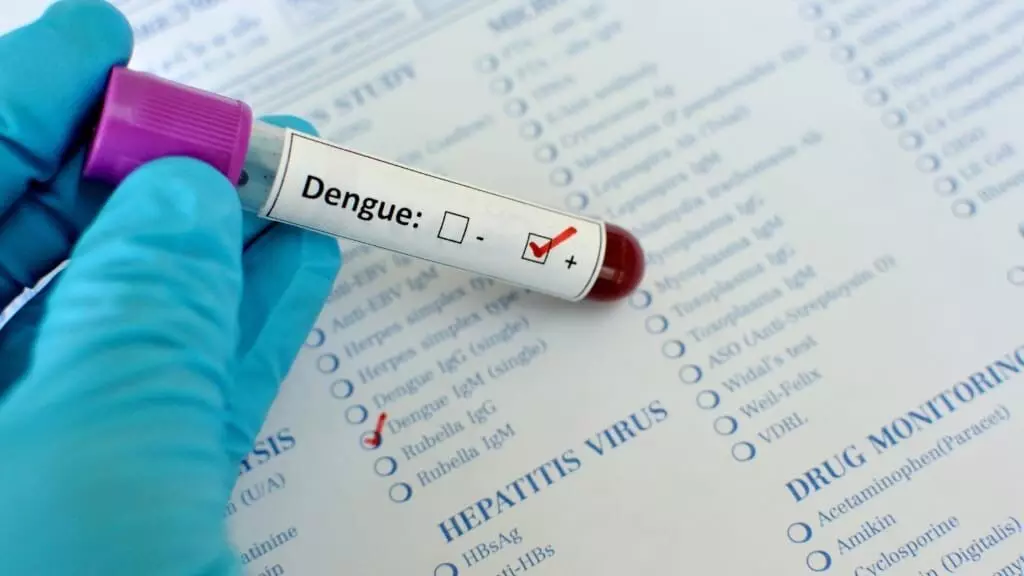India among 30 countries endemic for dengue virus; Telangana among worst hit states
In Telangana, Hyderabad, Suryapet, Medchal Malkajgiri, and Khammam districts are the worst hit
By Neelambaran A
Representation Image
Hyderabad: India is one of five countries in the WHO’s SouthEast Asian Region (SEAR) endemic for dengue virus.
India also ranks among the world's 30 most highly endemic countries, as per the WHO report.
Under WHO's ‘Global Strategic Preparedness, Readiness, and Response Plan (SPRP), India, Indonesia, Myanmar, Sri Lanka, and Thailand have a high incidence of dengue and other Aedes-borne arboviruses.
Among the Indian states, Rajasthan, Jammu and Kashmir, Assam, and Telangana have recorded higher dengue cases.
In Telangana, Hyderabad, Suryapet, Medchal Malkajgiri, and Khammam districts are the worst hit.
Dengue, Zika and Chikungunya spread in India
As per the report, India is one of the countries to record the transmission of chikungunya, dengue, and zika viruses.
Dr. Hari Gopinath, consultant pediatrician at Ankura Hospital for Women and Children, Kompally, Hyderabad said, “In 2024, India reported approximately 1.2 million cases of malaria, a 15% increase compared to the previous year. In Hyderabad alone, there were around 30,000 cases of dengue, marking a 20% rise. Additionally, chikungunya cases reached 15,000, while leishmaniasis affected around 5,000 individuals, predominantly in rural areas”
The report also highlights the effect of climate change in the increased spread of Aedes-borne infections due to higher rainfall, humidity, and increasing temperature favoring the expansion and establishment of mosquito vector populations.
India has also reported autochthonous dengue transmission which means that two or more people have contracted dengue fever in the same location. This situation prevails in SEAR, Australia, North, and South America, and a few African nations.
Five-point plan for Global Response
The SPRP has listed five key components for a successful response to be implemented for a period of one year, until September 2025.
The components include emergency coordination, collaborative surveillance, community protection, safe and scalable care, and access to countermeasures.
Dengue is considered endemic in more than 100 countries, with the movement of people and conveyance, unplanned urbanization, and the effect of climate change fueling mosquito breeding and spread of dengue and other aedes-borne arboviruses, the report mentions.
Prevention essential to stop spread
The vector-borne diseases (VBD) generally require effective prevention mechanisms along with treatment strategies.
“These figures indicate a worrying trend, exacerbated by urbanization, climate change, and inadequate sanitation. In Hyderabad, the monsoon season has led to increased vector populations, further elevating disease transmission risks. Community engagement, awareness, and personal responsibility can significantly contribute to reducing the incidence of these diseases and protecting public health”, Dr Hari Gopinath added.
The general preventive measures include the elimination of breeding sites, usage of insect repellants, protective clothing, indoor screens, and indoor spraying of approved insecticides.
Suggested treatments
Dr Hari Gopinath suggests common approaches for the treatment of VBD including malaria, dengue, chikungunya, and leishmaniasis.
While malaria can be treated with medications with severe cases requiring hospitalization and intravenous medications, dengue with no specific antiviral treatment requires supportive care including hydration and relief.
The treatment for leishmaniasis involves antiparasitic medications, with chikungunya focussing on pain relief and hydration, with recovery expected within a week, with few exceptions where people experience prolonged joint pain.